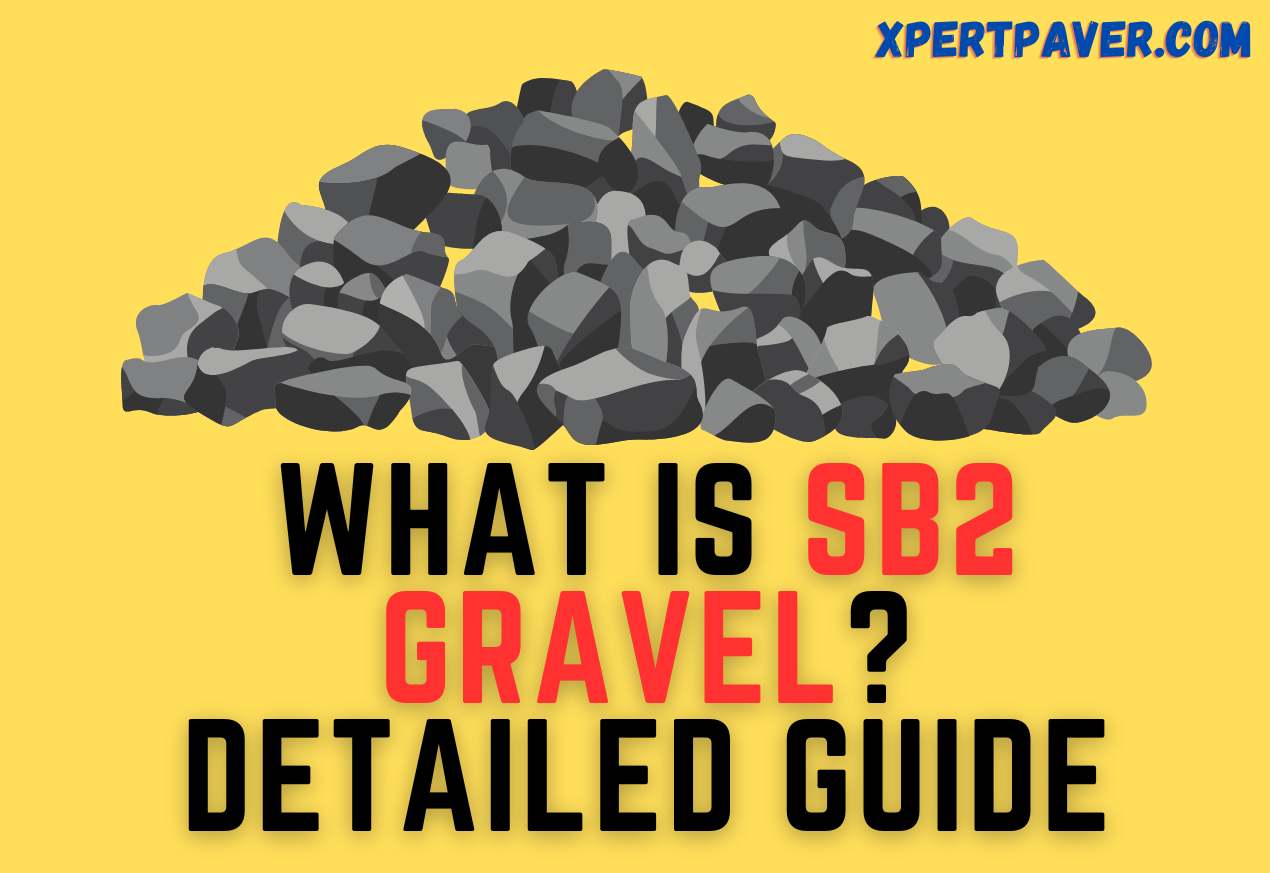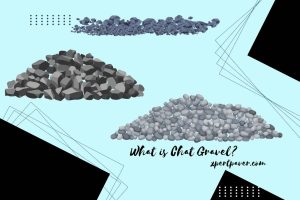Are you tired of looking for gravel for your driveway? It might be tricky to choose the best gravel since there are so many types with different characteristics. Therefore, today we will shed some light on sb2 gravel which is beneficial for heavy-duty projects. So, what is sb2 gravel? If You do not have an idea, join us to discover the special qualities of sb2 gravels. In addition, you will know what sb2 gravels are used for and many more things.
What is SB2 Gravel?
Sb2 gravel is made of crushed granite rock, and they are used as base gravel for driveways. Usually, sb2 contains both fine granite particles and packs together. When it comes to their appearance, they bear a grey color and random shape. The texture is obviously rough. In general, an sb2 gravel is ¾ to 1 inch large.
Mostly, they have characteristics of limestone base which is another kind of gravel for driveways. However, there are more benefits of sb2 gravels than limestone. The reason why they come with a harder texture than limestone but they are less dusty.
Some gravels which are made from crushed concrete contain a lot of dust, but there is no such issue with crushed granite. So sb2 is perfect for heavy-duty projects, but they are easy to work with. Moreover, when tracking, there is less danger with sb2 gravels. So you can replace sb2 gravel for even limestone.
How Much Does SB2 Gravel Cost?
Normally, you can buy sb2 gravels in half a cubic yard for $42.50, a cubic yard for $85, and a 5-gallon bucket for $6. Although it is a bit pricy, the durability of driveways is 100% confirmed by sb2 gravels.
What is SB2 Gravels Used for?
Basically, sb2 gravels are suitable for any kind of heavy-duty project. Since they contain medium to large granite particles, they are widely used for driveways. It is even suitable for driveways in which heavy vehicles run. Its rough texture is not easily distracted by the wheels.
Also, you can use them to lay a foundation for any kind of tough construction work, such as a patio base, since sb2 can be compacted well. Therefore, they are utilized to coat the surface of highways in rural areas as well.
Apart from that, you can use gravel to make concrete, mixing it with soil. Further, if gravel and asphalt are combined together, they can be used to build roads, paths, etc.
What Can I do to Make My SB2 Gravel Driveway Stable?
It is vital to make the driveway stable because an unstable one cannot back up the vehicle. Consequently, accidents may happen. But no need to worry because there are some actions you can easily take to make it stable.
Before you purchase sb2 gravel, make sure to measure the exact cubic yards for each layer of the path because inadequate gravel is one of the most common reasons for an unstable driveway. Then prepare the floor prior to laying the gravel.
So, get rid of topsoil and grass from the ground. After that, you should level the ground to compact the gravel smoothly. The foundation is the most important for a stable driveway; thus, make sure to prep the ground, as explained above, before you lay the foundation. After you spread the foundation layer, you can move on to the next layers as you wish.
How Much Should SB2 Gravel be Thick for a Driveway?
When making a driveway, you have to know the exact thickness of each gravel layer. Otherwise, the end result will be pointless. In general, you have to coat four inches thick layers of gravel for each to stabilize the driveway. What’s more, remember to coat the first layer with larger pieces; when you gradually fill the upper layers, use smaller pieces than the base layers. Then your driveway has a strong base and a smooth surface.
What are the Advantages of a Gravel Driveway?
There are numerous advantages of a gravel driveway. Most importantly, it is a permanent solution, so you will not have to do any repairs since the material is durable enough and it has the ability to endure heavy vehicles.
Moreover, the cost is reasonable, and most of the time, you can do the installation by yourself. When it comes to eco-friendly options, the best choice you can go for is gravel to create your driveway because it is a natural material and helps for a better drainage system.
What to Consider When Choosing the Best Gravel for Driveways?
When you are going to make a driveway, you will come across different types of gravel, from natural gravel as well to crushed stone. So, it would be better to keep a list to consider when choosing the right material.
Mainly, you should understand the two main types of gravel. Crushed ones are created by human involvement using some machines, while naturally formed gravels are an outcome of a natural phenomenon such as the erosion of a huge rock. Depending on the plenty and rareness, the prices of these two types of gravels vary. With that in mind, refer to the following factors when you purchase gravel.
Durability
To make a durable driveway, you will need gravel with a rough texture. So crushed stones are the winner here because they come with irregular shapes and rough textures, not like smooth, natural stones.
Drainage
Gravels that have larger pieces provide a better drainage system than smaller ones. Because larger particles create larger gaps in to flow of the water, and also dusty gravel may block drainage; thus, you should go for larger and clear gravel when making a driveway.
Shape and Color
A driveway is often touched by filthy wheels. Therefore, it will be pointless to use colorful gravel. And also, the shape of the gravel should be considered because round and smooth ones do not support the vehicles much. So choose gravel that works for heavy-duty projects from crushed stones.
The Amount
The type of gravel you choose may be varied depending on the length, width, and depth of the driveway. If you go for gravel with smaller particles, you must purchase an excessive amount and vice versa.
Recommended for You: Similar Articles to Explore
What Is CA6 Gravel? [Uses, Cost and CA6 vs CA7]
How Much Does Fieldstone Cost? Is It Cheaper Than Brick?
How to Grow Grass Between Pavers?
How to Install Travertine Pavers?
How to Decide Between Bluestone Vs Pavers for Your Walkway or Driveway?



